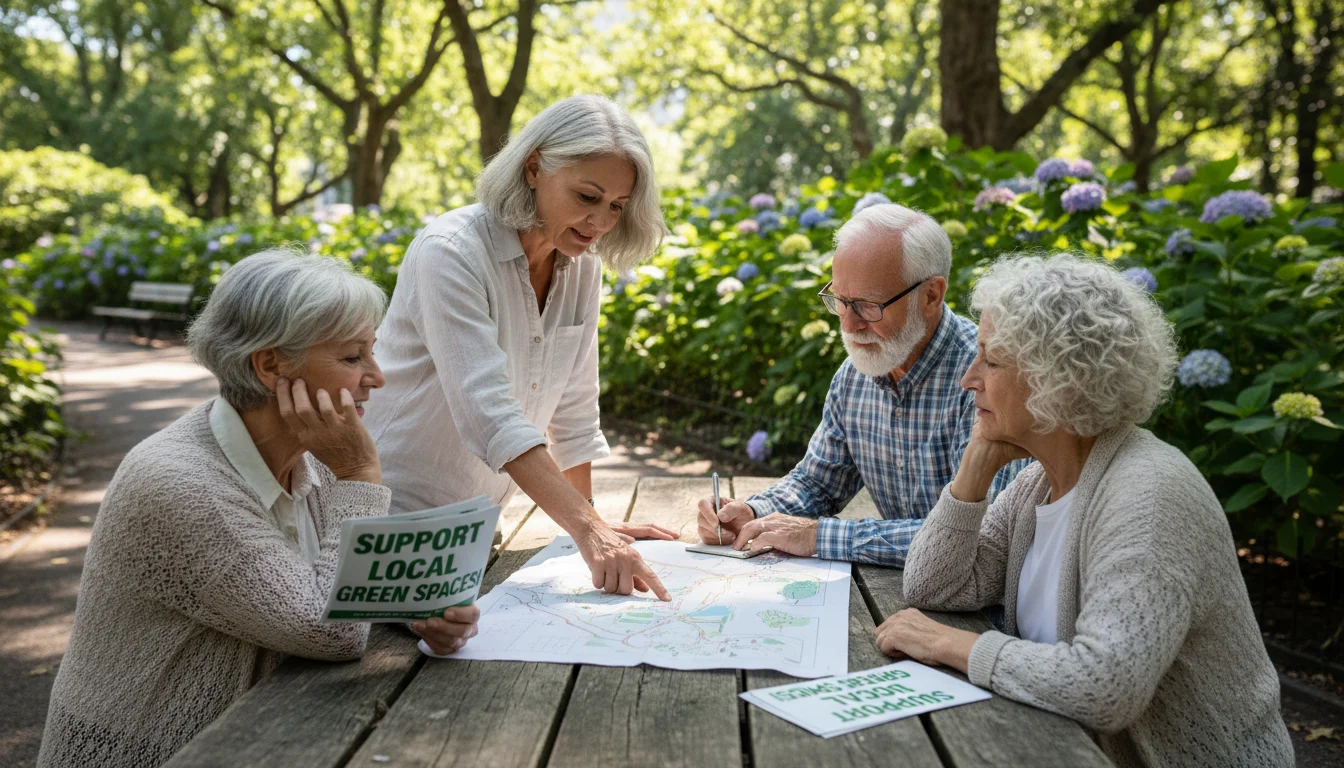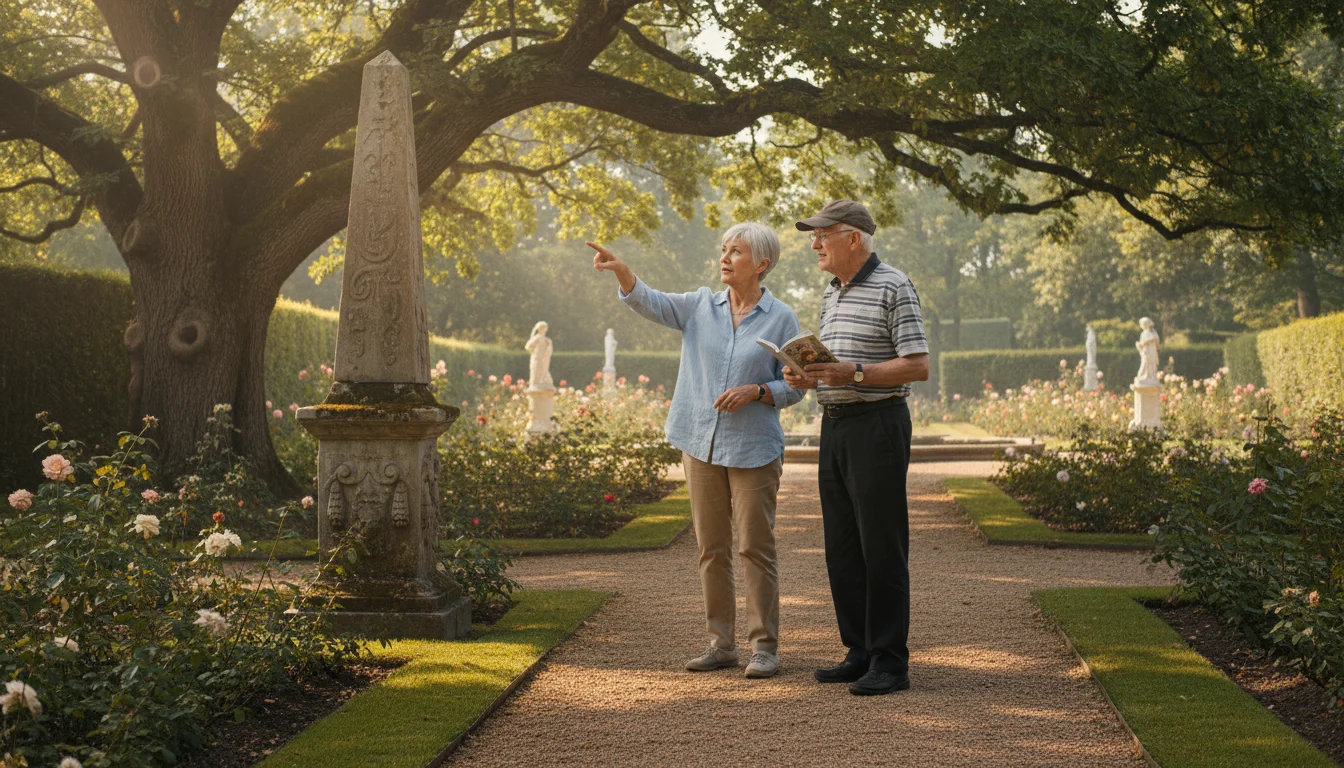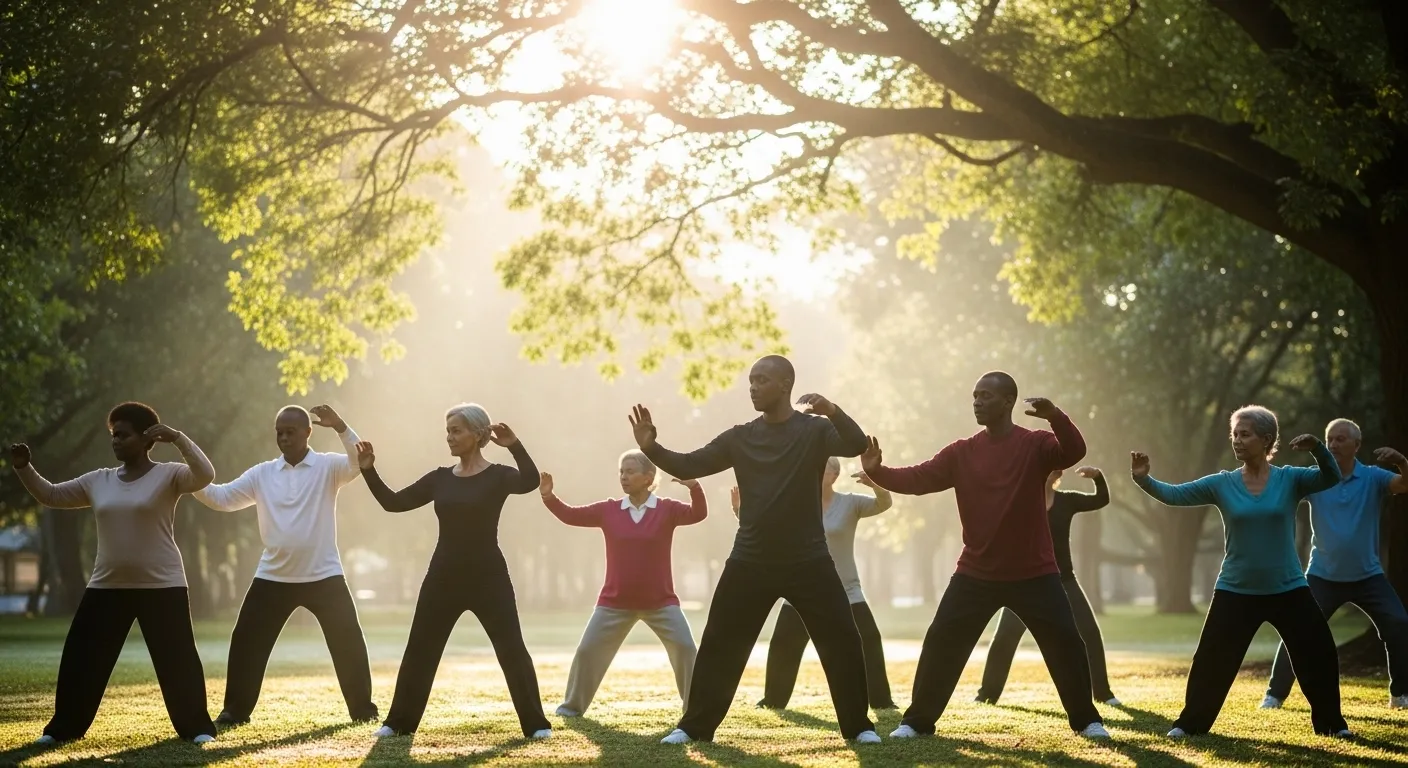
Introduction: The Next Great Chapter Awaits
I remember the day my colleague, Bill, retired. We threw him a party, gave him a gold watch (a classic, I know), and everyone talked about how much he’d enjoy sleeping in and playing golf. For the first few months, he was living the dream. He fixed every leaky faucet in the house, reorganized the garage, and lowered his handicap by three strokes. But when I met him for coffee about six months in, I saw a familiar look in his eyes—a hint of restlessness. “The days are long,” he admitted. “I love the freedom, but I feel like I’m… drifting.”
Bill’s experience is incredibly common. The transition from a structured life of work and raising a family to the wide-open landscape of retirement can be jarring. While the initial bliss of freedom is wonderful, it can sometimes give way to a quiet question: “What now?” The key to transforming that uncertainty into excitement is rediscovering a sense of purpose. It’s not about recreating the pressure of a 9-to-5 job; it’s about finding activities that energize you, connect you to others, and give you a reason to greet the day with enthusiasm.
This new chapter is a unique opportunity for profound self-discovery. It’s a time to explore the person you are outside of your professional title. True retirement happiness isn’t found in an endless vacation, but in a balanced, fulfilling life filled with meaning. Forget the outdated notion of retirement as an ending. Think of it as your personal renaissance. To help you on your way, here are ten inspiring ideas to help you find your new purpose.

Part 1: Giving Back and Building Community

1. Volunteer Your Lifetime of Expertise
You’ve spent decades honing skills, solving problems, and gathering wisdom. Why let all that experience sit on a shelf? Skills-based volunteering allows you to put your professional talents to work for a cause you believe in. A retired accountant can be a lifesaver for a small nonprofit struggling with its finances. A former marketing executive can help a local animal shelter revamp its outreach. A retired teacher can tutor children who need extra help. This isn’t just about stuffing envelopes; it’s about making a high-impact contribution that affirms your value and expertise. Organizations like SCORE connect retired executives with entrepreneurs, while local community centers often need skilled individuals to lead workshops or manage projects. The feeling of being needed and making a tangible difference is an incredible source of purpose.

2. Become a Mentor
Think back to your early career. Do you remember a person who gave you a piece of advice, made an introduction, or simply believed in you? You can now be that person for someone else. Mentorship is a powerful way to pass on your knowledge and shape the next generation. You can guide a young professional navigating their first corporate job, help a college student with their career path, or support a new immigrant learning the ropes in your community. The relationship is often mutually beneficial; while you offer guidance, you gain a fresh perspective and a connection to the world of today. It’s a legacy that extends far beyond your own accomplishments.

3. Engage in Local Activism
Is there something in your community you’re passionate about? Perhaps you want to preserve a local park, advocate for better public transportation for seniors, or ensure the historic downtown stays vibrant. Retirement gives you the time to attend city council meetings, join a neighborhood association, or start a grassroots campaign. This kind of work connects you directly to the well-being of your community. It provides a sense of agency—the knowledge that your voice and actions can create positive change. You’ll meet like-minded neighbors and build a strong network, all while improving the place you call home. Purpose can be found right on your own street corner.

Part 2: Lifelong Learning and Creative Expression

4. Go Back to School (Without the Pressure)
The thought of going back to college might seem daunting, but this time, there are no grades, no career pressure, and no all-night study sessions fueled by caffeine. Many universities offer programs for seniors to audit classes for free or for a minimal fee. Imagine sitting in on a lecture about Renaissance art, modern astronomy, or the history of jazz simply for the joy of learning. Online platforms like Coursera and The Great Courses offer thousands of classes you can take from your living room. Lifelong learning keeps your mind sharp, introduces you to new ideas, and is one of the most rewarding forms of self-discovery. It’s about feeding your curiosity, the purest reason to learn.

5. Master a Creative Skill
Did you always want to learn to paint, play the guitar, write a novel, or throw pottery on a wheel? Now is your chance. Tapping into your creative side is not only fun but also incredibly beneficial for your cognitive health. The focus required for a creative act can be a form of meditation, quieting the mind and reducing stress. Start by taking a beginner’s class at a local art center or community college. You’ll learn the basics in a supportive environment and meet other aspiring creators. The goal isn’t to become a world-famous artist; it’s about the process, the joy of making something with your own hands, and expressing a part of yourself that may have been dormant for years.

6. Trace Your Family Roots
Genealogy is more than just a hobby; it’s a journey into your personal history. It’s like being a detective, piecing together clues from old documents, census records, and family stories to build a picture of where you came from. This pursuit can become a profound source of purpose as you uncover stories of resilience, migration, and love that led to your own existence. It gives you a deeper connection to your identity and heritage. Better yet, it’s a legacy you can preserve and pass down to your children and grandchildren, creating a bridge between generations. Websites like Ancestry.com and FamilySearch have made it easier than ever to begin this fascinating quest.

Part 3: Health, Wellness, and Adventure

7. Embrace a Physical Challenge
Purpose can be physical, too. Setting a tangible health or fitness goal can provide incredible structure and motivation. This doesn’t mean you need to run a marathon (though you certainly can if you want to!). It could be training for a local 5K walk, joining a senior softball or pickleball league, or mastering 20 new yoga poses. The camaraderie of a team or class provides social connection, while the steady progress toward a goal delivers a powerful sense of accomplishment. The benefits are twofold: your physical health improves, and your mental well-being soars. One of the best senior lifestyle tips is to keep moving, and turning that movement into a joyful challenge is a fantastic way to do it.

8. Explore the World—or Your Own Backyard
Travel is a retirement dream for many, but it can be more than just a vacation. Travel with a purpose. Plan a trip around a specific interest, like visiting Civil War battlefields, touring the great gardens of England, or taking a bird-watching expedition. You could even join a volunteer trip with an organization like Habitat for Humanity. But you don’t need a passport to find adventure. Become a tourist in your own region. Visit every state park within a two-hour drive, become a docent at a local museum, or explore historical landmarks you’ve always driven past. For travel and recreation information for seniors, the National Park Service offers a lifetime pass that provides access to stunning landscapes across the country. Purpose can be found in the spirit of exploration, whether it’s across an ocean or just down the road.

9. Become a “Super-Grandparent” or “Grand-Friend”
For many, purpose is found in nurturing the next generation. If you have grandchildren, you can play a more intentional role in their lives beyond occasional babysitting. Set up a regular “date,” whether it’s a weekly trip for ice cream, a monthly fishing outing, or a project you work on together, like building a model airplane or planting a garden. Share your skills and stories. If you don’t have grandchildren nearby, consider becoming a “grand-friend” to a family in your community or through a formal program. Many working parents would be thrilled to have a kind, reliable elder figure in their children’s lives. The intergenerational connection is a gift for everyone involved.

Part 4: The Entrepreneurial Spirit

10. Launch a “Passion Project” Business
Retirement is the perfect time to become an entrepreneur on your own terms. This isn’t about building a Fortune 500 company; it’s about turning a lifelong passion into a small, enjoyable stream of income and activity. Do you love baking? Consider selling your famous pies at a local farmers market. Are you a skilled woodworker? Open an Etsy shop for your handcrafted birdhouses. Were you a great manager? Offer part-time consulting services to small businesses. The beauty of a “passion project” business is that you are in complete control. You set the hours, you choose the projects, and the primary goal is enjoyment, not just profit. It keeps your skills sharp and provides a wonderful sense of identity and accomplishment.

Tips for Getting Started and Finding Your Fit
Feeling inspired but not sure where to begin? That’s perfectly normal. The key is to explore without pressure. Here are a few practical tips to help you on your journey:
- Start Small. You don’t have to commit to a five-day-a-week volunteer gig right away. Try a one-time event first. Take a single-session pottery class before signing up for a full semester. Ease into new activities to see what genuinely resonates with you.
- “Date” Your Interests. Think of this phase as dating. You’re trying things out to find a good match. If you try a book club and find the selections aren’t for you, it’s okay to move on. Don’t be afraid to say, “This isn’t for me,” and try something else. The goal is to find joy, not another obligation.
- Reflect on Your Past. What did you love to do as a child or a young adult, before your career and family responsibilities took center stage? Often, our earliest passions hold the key to our current-day happiness. Dust off that old guitar, pick up a sketchbook, or revisit that love for history.
- Talk to People. Visit your local senior center, library, or community recreation department. See what programs they offer. Talk to friends and neighbors about what they do to stay active and engaged. You might hear about a hiking club or a volunteer opportunity you never would have found on your own. For lifestyle and community resources, AARP offers extensive articles and local chapters.

A Personal Perspective: My Neighbor’s Pickleball Epiphany
My neighbor, Frank, a retired engineer, is a perfect example of this journey. When he first retired, he was utterly lost. He was a man who thrived on projects and problems, and suddenly, his biggest problem was figuring out how to fill the day. He tried gardening but found it tedious. He tried a woodworking class but didn’t enjoy the noise. He was getting frustrated, feeling that nothing “fit.”
One afternoon, his wife convinced him to go with her to a free pickleball clinic at the local park. He went reluctantly, grumbling about it being a “silly game.” But something happened on that court. He loved the fast pace, the friendly competition, and the easy laughter between points. He met a group of fellow retirees who played every Tuesday and Thursday. Soon, he was one of them. Pickleball gave him a routine, physical activity, and, most importantly, a new community. He told me last week, “I never would have guessed this would be my thing. The purpose wasn’t in finding the ‘perfect’ hobby. It was just in being open enough to try something new.”

Resources to Help You on Your Journey
You don’t have to find your purpose alone. There are fantastic organizations ready to help you connect, learn, and contribute.
- Volunteering: Opportunities to give back can be found via AmeriCorps Seniors. They run several programs, including Foster Grandparents, Senior Companions, and RSVP, which matches your skills with local needs. Websites like VolunteerMatch.org also list thousands of opportunities.
- Learning & Community: Your local library is a treasure trove of free classes, book clubs, and events. Many community colleges have lifelong learning institutes (LLIs) or Osher Lifelong Learning Institutes (OLLIs) designed specifically for seniors.
- Recreation: As mentioned, the National Park Service Senior Pass is an incredible value for travelers. For local programs, check your city or county’s Parks and Recreation department website for everything from fitness classes to sports leagues.
- General Support: For lifestyle and community resources, AARP offers extensive articles and local chapters that host social events and advocacy groups.

Frequently Asked Questions About Finding Retirement Purpose
What if I’m on a fixed income? Many of these ideas seem to cost money.
That’s a very real concern. The good news is that many of the most meaningful activities are free or low-cost. Volunteering costs nothing but your time. Libraries offer free books, classes, and internet access. Hiking in local parks is free. Mentoring costs nothing, and many community and senior centers offer highly subsidized classes. Focus on the wealth of free resources in your community first.
I feel too tired or have health limitations. How can I find purpose?
Purpose is not dependent on physical ability. The key is to adapt activities to fit your energy levels and mobility. If walking a 5K is out, how about chair yoga? If you can’t travel, you can explore the world through books and documentaries. Mentoring can be done over the phone or video call. Creative hobbies like writing, knitting, or digital art can be done from a comfortable chair. The focus should be on what you can do, not what you can’t.
My spouse and I have very different interests. How do we navigate this?
This is actually a wonderful opportunity for your relationship! It’s healthy and enriching to have separate hobbies. It gives you new things to talk about and allows each of you to grow as individuals. The goal is to find a balance. Plan certain activities to do together—like a weekly walk or a travel adventure—but also encourage and support each other’s individual pursuits. His passion for pickleball and your love for the pottery studio can coexist beautifully.
I’m an introvert, and the thought of joining big groups is intimidating.
Many paths to purpose are perfect for introverts. Genealogy is a quiet, solo pursuit. Writing, painting, and learning an instrument can be done from the comfort of home. Volunteering doesn’t have to be in a crowded soup kitchen; you could help catalog artifacts for a historical society, mend blankets for an animal shelter, or transcribe historical documents online. Start with activities that honor your nature, and you may find that your confidence grows over time, making smaller group activities feel more approachable.
Disclaimer: The advice in this article is based on general experience and is for informational purposes. Please research local opportunities and consult with relevant experts before making significant lifestyle changes or purchases.
Ultimately, finding purpose after retirement is a personal journey of self-discovery. It’s about listening to that quiet inner voice that may have been drowned out by the demands of work and family for years. Be patient, be curious, and be kind to yourself. Your next great chapter is waiting to be written, and you hold the pen.
For expert guidance on senior health and finance, visit National Institute on Aging (NIA), Centers for Disease Control and Prevention (CDC) and Medicare.gov.
|
Fact-Checked Content
Our editorial team reviews all content for accuracy and updates it regularly. Learn about our editorial process →
|

















